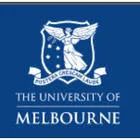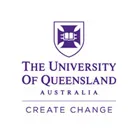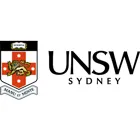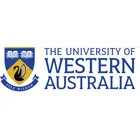Study in Australia
Study in Australia implies getting extraordinary schooling in an energetic spot. Australia is known for its first rate education and cool research labs. There are countless courses to look over, so you can concentrate on anything you like.
The combination of academic excellence, cultural diversity, and breathtaking landscapes that Australia has to offer is one of a kind. Students can acquire valuable skills and knowledge in their chosen fields through world-class universities and innovative teaching methods. Australia's vibrant cities, stunning natural beauty, and friendly locals offer a rich and satisfying experience beyond academia. Australia awaits to inspire, challenge, and empower you to reach new heights in your academic and personal endeavours.

Top Universities in Australia

The University of Melbourne

The University of Queensland

The University of New South Wales

The University of Western Australia
Top Courses in Australia
Master data-driven decision-making with business analytics courses from top Australian institutions, equipping you for leadership roles.
Advance your IT career with cutting-edge courses from leading Australian universities, focusing on innovation and practical skills.
Develop leadership skills and strategic thinking with an MBA from top universities in Australia, preparing for global business challenges.
Why choose Australia?
9 of the world's top 100 universities
Source: QS World University Rankings 2024
95% of universities ranked globally
Source: QS World University Rankings 2024
6 of the world’s top 50 student cities
Source: QS World University Rankings 2024
6 of the world's top 50 student cities
Source: QS Best Student Cities 2024
General Thumb rule to check Academic Eligibility to study in Australia
Year 12: 2.40 to 2.59 GPA = Diploma or Advanced Diploma (VET or Higher Education)
Year 12: 2.60 GPA or over = Bachelor’s Degree
Bachelor’s Degree (3 Years) = Graduate Diploma + Masters Coursework
Bachelor’s Degree (4 Years) = Masters Coursework
Master’s Degree (2 Years) + 2 to 3 Years relevant work experience = Masters Research
| Level of Education | IELTS | PTE | TOEFL iBT |
|---|---|---|---|
| Diploma or Advanced Diploma (VET) | O: 5.5 E: 5.0 |
O: 42 E: 36 |
59 - 35 |
| Diploma (Higher Education) | O: 6.0 E: 6.0 |
O: 50 E: 50 |
60 - 78 |
| Bachelor's Degree | O: 6.0 E: 5.5 |
O: 50 E: 50 |
78 - 46 |
| Masters Coursework | O: 6.5 E: 6.0 |
O: 58 E: 50 |
93 - 60 |

Life in Australia
Australia's vibrant and varied life for international students combines academic excellence, cultural diversity, and natural beauty. In this dynamic and multicultural nation, students can pursue their educational objectives while immersing themselves in a welcoming community, exploring stunning landscapes, and enjoying a high quality of life.
Find out moreVISA Requirements
Following extensive assessment, the Department of Home Affairs (DoHA) has designated the International Student Visa as Visa Sub Class 500. Prior to this, paper-based applications were submitted, requiring the submission of a Pre-Visa Approval before moving on to the Visa Medical, Visa Subclass 501,502,503, SVP / Non-SVP, SSVF, GTE, and finally, GSA. Dependents who apply for a visa subsequently are classified as subsequent applicants under Visa Sub Class 500.
In order to determine whether a student has to submit proof of their ability to pay for their study and to speak English fluently together with their application for a student visa, GSA streamlines and offers the combined evidence level outcomes of the student's education provider and country of citizenship. Here, the nation and the institution have each been assigned a Risk Assessment Level between 1 and 5.
Based on their combined nation and education provider evidence level outcomes, students can use the online document checklist tool to get advice about what papers they should submit with their student visa application.
1. Cost of Living
The average living cost in Australia for an international student is estimated to be from AUD 20,000 to AUD 25,000 per year. However, these expenses may differ depending on the student's lifestyle, kind of housing, and geographic location. The cost of living is typically higher in major cities like Sydney and Melbourne than in smaller cities or rural locations.
2. Examine Prices
Here are a few ballpark figures:
2.1 Studies of English Language
Typical weekly expenses: $350 to $450, depending on the duration of the course.
2.2 Vocational Training and Education (Advanced Diploma, Diploma, and Certificates I through IV)
Cost: from $4,000 to $22,000 each year.
2.3 Bachelor's Degree Program for Undergraduates
Annual Cost: $15,000 to $35,000.
2.4 Master's Degree Postgraduate
Cost per year: $20,000–$42,000.
2.5 Degree of Doctoration
Costs range from $20,000 to $42,000 per year (attractive scholarships of up to 100% and living subsidies upon fulfillment of university prerequisites are available).
Remember that living expenses and tuition for studying in Australia can change depending on your own choices, lifestyle, and the region you choose. For the most recent and detailed information, it is advised to visit the university's official website or get in touch with the admissions office.
With A One Global Consultants, you can study in Australia and get unmatched opportunities for academic excellence and personal development. Our dedicated team is committed to assisting students at every stage of their educational journey to ensure a rewarding and enriching experience.Scholarship Opportunity
At A One Global Consultants, we are aware of how crucial it is to locate scholarships that will assist international students in achieving academic success in Australia.
Intake Details in Australia
International students typically enrol in two main intakes at Australian universities: July and August, respectively.
The intake in February and March coincides with the first semester of the Australian academic year, whereas the intake in July and August coincides with the second semester. For certain programs, some institutions may also offer a mid-year intake in November or December.
Check the specific intake dates for the university and course you’ve chosen.
| Level of Education | Intakes |
|---|---|
| Diploma or Advanced Diploma (VET) |
Every Month OR Every Alternate Month |
| Diploma (Higher Education) |
Feb – March June – July Oct – Nov |
| Bachelor’s Degree |
Feb – March June – July Oct – Nov |
| Masters Coursework |
Feb – March June – July Oct – Nov |
Documents Check
In addition to meeting the English test score criterion and demonstrating academic eligibility, you must also satisfy the "Genuine Student Assessment Criteria", which are based on a number of related characteristics. In addition to "Course Alignment" and "Choice of Provider or City", your sponsors' "Financial Strength" is also a factor. In order to ensure that your "Profile Analysis" is completed meticulously and leads to a successful career, our team of "Counselors" and "Documentation Officers" will support you. You will receive real-time application status updates as well as end-to-end application management, GSA guidance, and verification.
Checklist of Documents for Offer Letters:
- Academic to Date with Valid Passports (Transcript, Character, Provisional)
- Work History, Education, and Experience
- Any Extracurricular Activities (Give out certificates)
- Score from the IELTS, PTE, or TOEFL iBT Test (may be conditional; score requirements must be met before GSA submissions)
- Declaration of Purpose (if necessary, depending on the institution)
- Interview (if necessary, depending on the institution)
Genuine Student Assessment Criteria (GSA) Document Checklist:
Source of Income: Salaried
- Bank statement for the salary account, employee ID card, personal PAN card, employment and salary certificate, and tax clearance certificate.
Pension:
- Pension Book or Letter, Bank Statement.
Business:
- Bank statement of the company, audit report, tax clearance, and registration of the company, if it is a legal partnership.
Agriculture:
- Buyer letter, farm or produce photos, tax clearance, and statement whether the farm is registered, same as a business.
Commercial Vehicle Lease:
- Car ownership, lease agreement, bank statement, auto insurance, photos, auto valuation, and tax clearance.
Property Rental:
- Agreement, Tenant Citizenship or Registration, Statement, Income Tax Clearance, and Land or House Property Tax Clearance.
Foreign Employment:
- Work Contract, Local ID, Passport, and Valid Visa (minimum of six months).
Documents must be meticulously examined and independently confirmed. Sponsors are exempt from having to prove funds if they can provide a one-year bank statement proving their annual taxable income of at least AUD 20,000 for single students or AUD 25,000 for students traveling with family.
Frequently Asked Questions
To study in Australia, you must apply directly to your selected university. Begin by researching institutions and courses, then filling out their online application form, submitting relevant documents (such as academic transcripts and English proficiency test results), and paying any application costs.
Requirements vary from institution to institution and course to course, but you will need proof of academic certifications such as a high school certificate or four-year college education, knowledge of the English language, passing exams such as IELTS and TOEFL.
Yes, international students with a student visa (subclass 500) can work part-time (up to 40 hours per week) throughout the academic year and full-time during specified breaks. This enables students obtain work experience while also supplementing their living expenditures.
If you wish to apply for a student visa, you must have a confirmed enrolment certificate (COE) from an Australian institution and meet all the health and character standards. You may easily apply online on the official website of the Department of Home Affairs.
Scholarships are offered by the Australian government, educational institutions, and other organizations. Notable ones include Australia Awards, Destination Australia, and university-specific scholarships.
What Students Say About Us and
Our Services

A One Global Consultants has incredibly remarkable visa application knowledge. They gave me priceless information that made the application process much easier.

Offered me honest and unbiased career guidance. Their team is incredibly supportive and knowledgeable.

It was the right choice to choose A One Global. They provided me with excellent pre-departure support and assisted me in choosing the appropriate subject and university.

I successfully enrolled in my dream university. Their team is dedicated and professional.

Their extensive network of universities and colleges made it easy for me to find the best fit for my studies abroad.

The team’s knowledge and experience are unparalleled. They made my dream of studying in Canada come true.

A One Global Consultants are very responsive and always available to answer any queries I had during the process
Popular Study Destinations